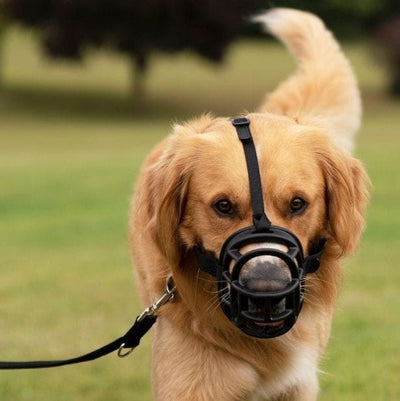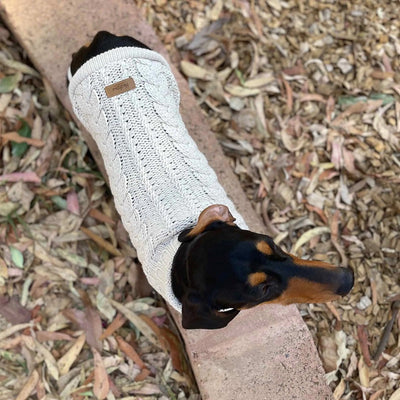
Rabbits make great pets for families and are popular pets that people now keep indoors.
If you're a new rabbit owner, you may be wondering whether to keep your furry friend indoors or outdoors. Their compact size makes them ideal household pets while their wild origins allow them to suit the great outdoors.
There are pros and cons to both options, and it ultimately depends on your lifestyle and the needs of your rabbit.
This guide will help you make an informed decision and provide tips for keeping your rabbit happy and healthy.
Consider the climate and weather conditions in your area.
One of the most important factors to consider when deciding whether to keep your rabbit indoors or outdoors is the climate and weather conditions in your area. Rabbits are sensitive to extreme temperatures, so if you live in an area with harsh winters or hot summers, you may need to keep your rabbit indoors to protect them from the elements. On the other hand, if you live in a mild climate, your rabbit may enjoy spending time outdoors in a safe and secure enclosure like our rabbit hutch.
Be sure to research the specific needs of your rabbit's breed and consult with our helpful staff before making a final decision. Our staff have knowledge of local conditions in the Southern Highlands and can advise you accordingly.
Evaluate the space and environment you have available for your rabbit.
Before deciding whether to keep your rabbit indoors or outdoors, it’s important to evaluate the space and environment you have available for them. If you have a large, secure yard with plenty of space for your rabbit to run and play, they may be happier living outdoors.
However, if you live in an apartment or have limited outdoor space, keeping your rabbit indoors may be the best option. Additionally, consider any potential hazards in your environment, such as predators or toxic plants, and take steps to ensure your rabbit’s safety. We have a selection of small animal enclousures suitable for keeping rabbits as indoor pets.
Think about the potential risks and dangers of keeping your rabbit outdoors.
While keeping your rabbit outdoors can provide them with plenty of space to run and play, it also comes with potential risks and dangers. Predators such as foxes, and birds of prey can pose a threat to your rabbit’s safety. Additionally, outdoor rabbits are at risk of contracting diseases from wild rabbits or other animals.
It’s important to take steps to protect your rabbit, such as providing a secure enclosure and monitoring their outdoor time. Consider these risks carefully before deciding whether to keep your rabbit indoors or outdoors.
calicivirus virus.
How Do I Prevent Calicivirus (RHDV) in my Rabbit?
There are several steps you can take to help prevent calicivirus (RHDV) in your rabbit in Australia:
-
Vaccination: The most effective way to prevent RHDV2 is through annual vaccination. Consult with a veterinarian to determine the appropriate vaccination schedule for your rabbit.
-
Biosecurity: RHDV can be spread through contact with contaminated surfaces or other rabbits. Minimise your rabbit's exposure to potential sources of infection by keeping them indoors or in a secure hutch, and by avoiding contact with other rabbits or their feces.
-
Sanitation: Clean and disinfect your rabbit's living area regularly to help reduce the risk of infection. Use a disinfectant that is effective against RHDV, and be sure to follow the manufacturer's instructions.
-
Pest control: Control the population of insects, such as fleas and mosquitoes, which can transmit RHDV to your rabbit. Use appropriate insecticides and keep your rabbit's living area free of standing water.
-
Quarantine: If you bring a new rabbit into your home, keep them separated from your existing rabbit for at least two weeks to ensure they are not carrying RHDV or other infectious diseases.
By taking these steps, you can help reduce the risk of your rabbit contracting RHDV in Australia. However, it's important to remember that no prevention strategy is 100% effective, so it's important to monitor your rabbit's health closely and seek veterinary care if you suspect they may be ill.
What are the current Calicivirus Protocols for Pet Rabbits?
Current vaccination to prevent the most recent strain of calicivirus (RHDV1 & RHDV2) in rabbits involves a single vaccine from the age of 10 weeks. This vaccination now provides immunity for 12 months.
Make sure that you book into your local veterinarian and schedule this annual vaccine.
Weigh the benefits and drawbacks of keeping your rabbit indoors.
Keeping your rabbit indoors has its benefits, such as protection from predators and exposure to a controlled environment. Indoor rabbits are also less likely to contract diseases from other animals. However, indoor rabbits require more attention and care, as they need to be let out of their enclosure for exercise and playtime. Additionally, indoor rabbits may cause damage to furniture and other household items if not properly trained. Consider your lifestyle and living situation before deciding whether to keep your rabbit indoors or outdoors.
Consult with our staff for advice and guidance.
If you're still unsure about whether to keep your rabbit indoors or outdoors, don't hesitate to consult with our staff for advice and guidance. Our team of experts can provide you with personalised recommendations based on your specific situation and needs.
We can help you weigh the pros and cons of each option and make an informed decision that will benefit both you and your furry friend. Contact us today to schedule a consultation.
Company of family members
If you want your rabbit to have constant social interaction, then keeping them indoors may be the best option. However, it's important to also provide your rabbit with some alone time to prevent over-stimulation. Outdoor living may be suitable if you have a secure and safe space for your rabbit to roam and play, but it's important to protect them from predators and extreme weather conditions. Ultimately, the decision should be based on what is best for your individual rabbit's needs and personality.
Rabbits are very clean pets!
While rabbits can be litter trained and groom themselves regularly, their urine can have a strong odour. If you choose to keep your rabbit outdoors, make sure they have a secure and spacious enclosure to protect them from predators and extreme weather conditions. There are pet litters available that have odour neutralising properties, we highly recommend using these.
If you opt for indoor living, ensure that your rabbit has plenty of space to move around and explore, and that their litter box is cleaned regularly to reduce any unpleasant odours.
Ultimately, the decision should be based on what is best for your individual rabbit and their specific needs.
© weknowpets 2023








